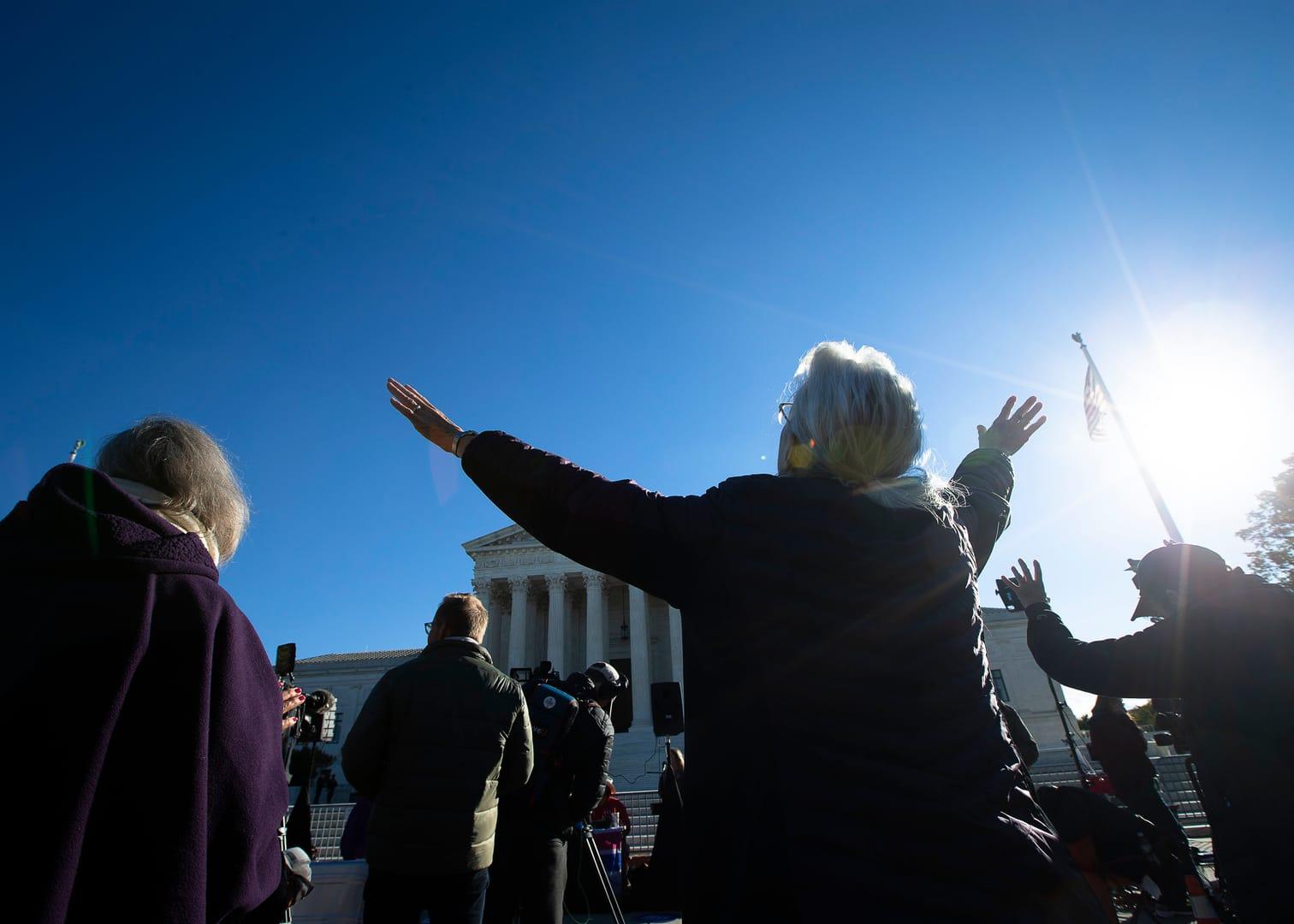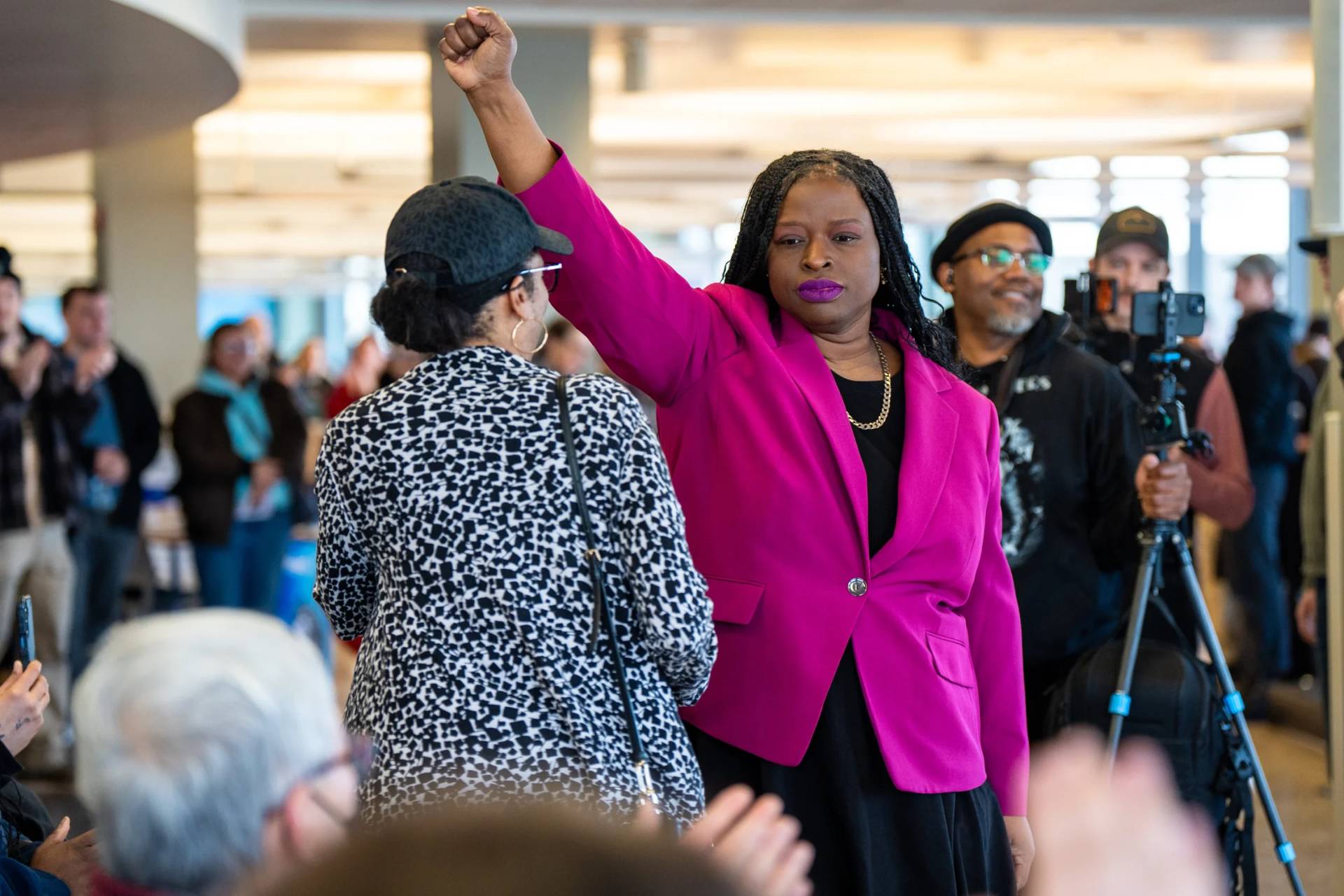NEW YORK – When the Supreme Court hears arguments this week in a Mississippi abortion case, the state’s Catholic bishops will watch closely in anticipation of what could be a major victory for the pro-life cause.
“We really need to win this battle and we are definitely bringing it to prayer in a big way as a diocese and I’m hoping the whole country will pray for the Supreme Court justices to make a decision that is built on the right to life,” Bishop Louis Kihneman of Biloxi told Crux.
The case is Dobbs v. Jackson Women’s Health Organization. It deals with the constitutionality of a 2018 Mississippi law, the “Gestational Age Act,” that bans abortions after 15 weeks of pregnancy except in medical emergencies and in cases of “severe fetal abnormality.”
Lower courts blocked the law. Now in the hands of the nation’s highest court, it’s one of, if not the biggest, challenges to Roe v. Wade – the 1973 decision that declared a nationwide right to abortion – and the 1992’s Planned Parenthood v. Casey, which prevents states from banning abortion before viability. Viability is the point that a fetus can survive outside of the womb; approximately 24 weeks into a pregnancy.
The Supreme Court has never allowed states to ban abortion before viability.
It’s not set in stone that a ruling in the case will overturn those decisions. The court could rule exclusively on the Mississippi law. However, legal experts believe that is unlikely, and that if the Supreme Court overturns the lower court decisions there will be implications for Roe and Casey.
If Roe and Casey are overturned each individual state’s abortion laws will be decided by the state legislatures. If the Supreme Court affirms the lower court decisions on the Mississippi law the status quo will likely remain.
On Sunday, Nov. 28, there was a prayer service at the New Horizon Church International in Jackson, Mississippi, which was attended by Bishop Joseph Kopacz of Jackson. The bishop told Crux Mississippi Gov. Tate Reeves attended as well.
“[The case] has received a lot of attention not only in the city, but in the state and then those around the nation certainly see this as the golden opportunity to make a difference regarding the reality of abortion,” Kopacz said.
Key player arguments
The Jackson Women’s Health Organization, the respondent in the case, is the only state-licensed abortion clinic in the state of Mississippi. The clinic offers abortions up to 16 weeks of pregnancy. Approximately 100 patients per year obtain an abortion after 15 weeks from the providers, according to lawyers for the clinic in a September 13 brief to the Supreme Court.
In the brief, the lawyers use Casey as a main argument why the Supreme Court should reject the Mississippi law. They argue that “time and again, the Court has reaffirmed that it is ‘imperative’ to retain a ‘women’s right to terminate her pregnancy before viability.’”
They also argue affirming the lower court’s decisions is the only way to protect the right of women to “decide whether to continue a pre-viability pregnancy to term,” and claim the state’s arguments don’t provide a basis for overruling the viability line.
The brief was the most recent one submitted on behalf of the clinic.
Thomas E. Dobbs, the state health officer for the Mississippi Department of Health is representing the state as the petitioner in the case. In the latest brief to the court on Oct. 13 signed by lawyers on his behalf, they argue the high court should overrule Roe and Casey, uphold the Gestational Age Act, and reverse the earlier U.S. Court of Appeals for the Fifth Circuit judgement to block it.
Central to their argument is a claim that viability is an arbitrary line that has “no constitutional or principled basis,” therefore there shouldn’t be a viability rule.
In July 2020, the Catholic dioceses of Jackson and Biloxi submitted their own amicus brief to the Supreme Court, as did the United States Conference of Catholic Bishops in July 2021.
The dioceses, through their lawyers, centered their argument on fetal pain. They cited Dr. Maureen Condic, a neurobiology professor at the University of Utah who was cited by the state as finding that “during the time period covered by [the Gestational Age Act], the human fetus is likely to be capable of conscious pain perception.”
“Whether an unborn child can feel pain when a doctor aborts, or kills it, it is clearly relevant to a law which forbids abortions at a time when the unborn child can still feel pain,” the brief argues.
The USCCB meanwhile, through lawyers, anchored its argument on the overall constitutionality of abortion.
“The constitution does not create a right to an abortion of an unborn child before viability or any other stage of pregnancy,” the brief argues. “Abortion is inherently different from other types of personal decisions to which this court has accorded constitutional protection.”
Catholic pro-life advocacy beyond the Mississippi law
Regardless of the Supreme Court’s decision Kihneman and Kopacz recognize that for pro-life cause has a long way to go, and advocacy must continue.
Kopacz noted that along with prayers for a successful outcome at the level of the Supreme Court, there’s also a “deep sense that we need to redouble our efforts to be there for people who are in need with unplanned pregnancies.”
“It’s a propitious moment on one level, and on another level, there’s always going to be the need for conversion, greater respect for life,” he said. “There’s a need really to raise up the dignity of life beginning in the womb and for women who are in the reality of an unplanned pregnancy.”
Kihneman highlighted the importance of having tough conversations.
“There’s a real need for the country to have an open and honest discussion about this whole subject, especially in the life of the child. Until we do that, I think the divisions that we have are going to continue and there is a need for us to come to some unity around life,” Kihneman said. “It’s important for the soul of our country.”
Follow John Lavenburg on Twitter: @johnlavenburg














